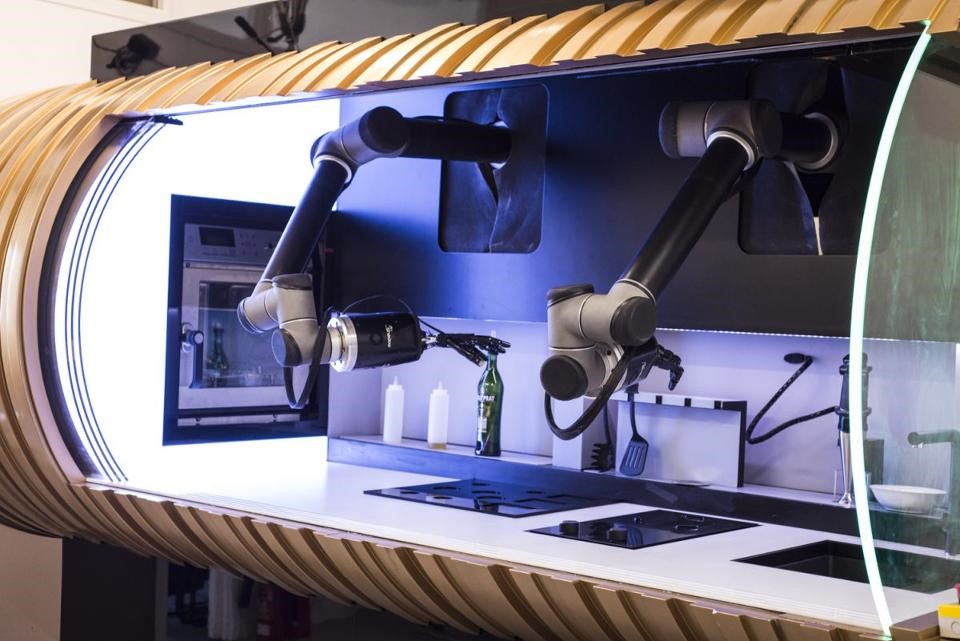Kitchen Robots: End of Chefs or Just Another Helping Hand? Blog by Oystein Mojord from Chef & Yöung
This month Oystein Mojord from Chef & Yöung wonders how long it will take before robots replace chefs in the kitchen.
Robots have long been predicted to make their mark in kitchens but how far away are they and what is the impact on our industry?

Moley is a company working on a new fully automated and integrated intelligent cooking robot. The robot will have access to hundreds of recipes and have the skill to cook them and clean up afterwards – all without the need for a human to get involved in the process. The team behind the robot recorded the cooking skills of chef Tim Anderson, winner of BBC’s MasterChef: The Professionals 2011, with every motion and touch and then replayed his exact movements through the robotic hands. Is this the future? Will they be ubiquitous robots – relieving every household from the “burden” of needing to cook their own food?
Smart kitchens and robotics have long been a topic of fascination and discussion. For instance, Professor Azamov (roughly) predicted the rise of robots in the 60’s but visions have often fallen a little flat as we often overestimate the speed of evolution in technology and underestimate the changes in food culture.
There are still many hypotheses around how dependent we will be on robotics and the effect on our workforce e.g. chefs. Some robotic automation will most likely come in to simplify and improve certain repetitive processes, especially within large-scale food manufacturing. However, many people are forgetting the human element that is intrinsic to the food experience. Consider the restaurant and/or hotel guest who is paying for a full eating experience where intuition, creativity, taste, and emotion are key in creating these good food experiences. Something robots lack.
We recently met Professor Charles Spence at London Food Tech Week and he stated in his newest book Gastrophysics that, “The pleasures of the table reside in the mind, not the mouth”. Professor Spence studies the science of sensory perception and has discovered that the perfect meal has less to do with the “nuts and bolts” of the cuisine but much more about everything else e.g. smells, sounds, colours etc. and tries to define the difference between a memorable meal and one to be forgotten.
For now, our focus should be on creating memorable food experiences for our guests with science and technology aiding the skills of human chefs. Robots may one-day play a role within our industry but to a lesser degree than in others as ours is a people business where human senses play the bigger part.
Oystein Mojord
Chef & Yöung is a Scandinavian brand working to grow the talent and passion of yöung chefs and foodies, promoting cooking as a lifestyle. Everything started when the Norwegian chef, Oystein, travelled around the world and noticed that there was a high demand for quality chefs in the kitchens; meanwhile his colleagues were constantly switching jobs. He decided something had to be done and Chef & Yöung was born to bring in a new attitude among yöung chefs and promote cooking as a lifestyle. Oystein co-owns Chef & Yöung with Mattias Nordlander who focuses on the sales, marketing and finance side of the business.
Twitter: @chefandyoung


{{user.name}}